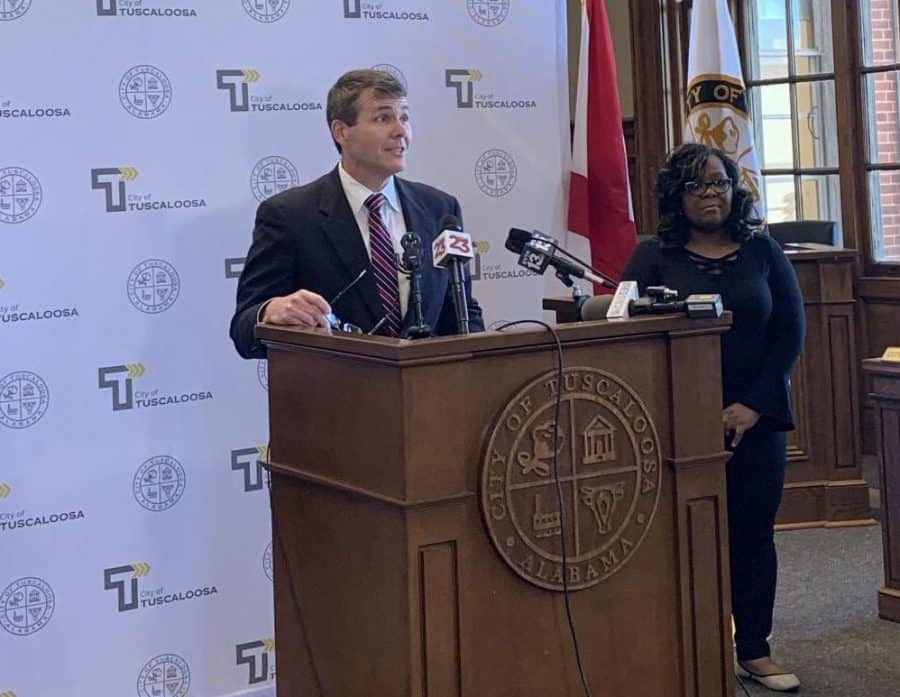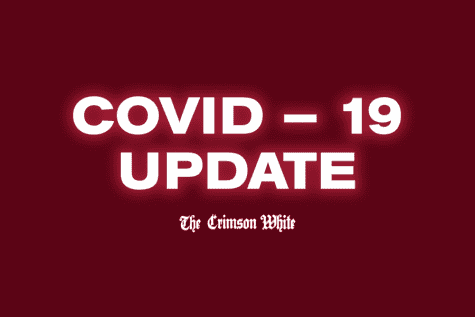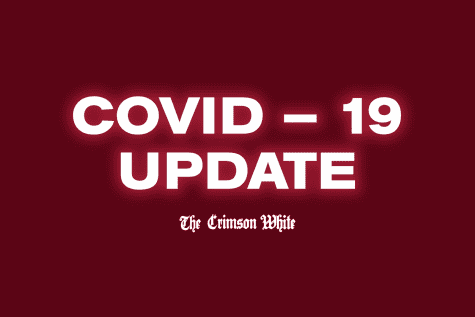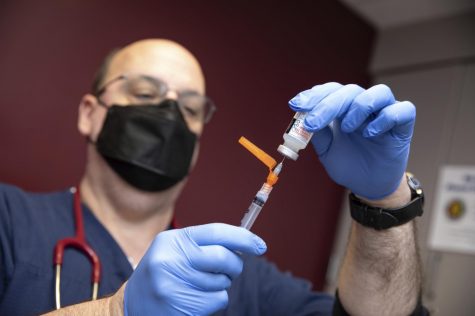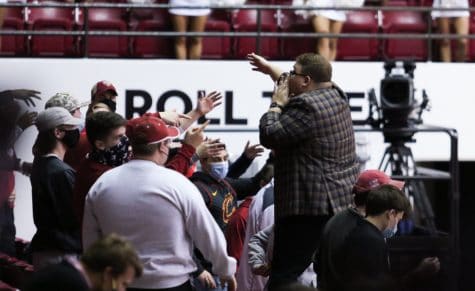Maddox extends citywide curfew to limit coronavirus spread
March 25, 2020
Update, March 26 at 8 p.m. – Due to the rapidly developing situation, Tuscaloosa Mayor Walt Maddox has issued an executive order extending the public safety curfew for Tuscaloosa residents to 24 hours a day. The order will go into effect on Sunday, March 29 at 10 p.m. and continue in effect until midnight on Saturday, April 11. The order will be re-evaluated on Saturday, April 11.
Under the extended curfew, Tuscaloosa residents will be asked to remain in their home or place of residence at all times, leaving only for essential purposes. These purposes include but are not limited to: work at essential businesses; visiting essential businesses like grocery stores, pharmacies, financial institutions and gas stations; providing care for others; retrieving to-go orders from restaurants; attending doctor’s appointments; and exercising outside – as long as six feet of social distance is maintained.
Businesses and places of employment that are considered essential may continue to operate under health protocols as outlined by the Alabama Department of Public Health. Such businesses include, but are not limited to: public safety and emergency services; public health & medical providers; utility providers; medical providers; media outlets; delivery services; organizations that provide or restock essential services such as food, fuel, pharmaceutical supplies or emergency supplies; and federal, state, county and city governments.
All non-essential businesses and services will be closed under this order.
Mayor Walt Maddox announced a mandatory curfew for the City of Tuscaloosa during a press conference Wednesday. The curfew will start on March 27 and continue until April 3. Residents are prohibited from public places between the hours of 10 p.m. and 5 a.m throughout this period.
The goal of the order, according to Maddox, is “to promote the health, safety and welfare of the citizens of Tuscaloosa and mitigating the spread of infectious diseases by reducing the risk of exposure during a time of outbreak.”
This executive order comes one day after Jefferson County, home to more than one-third of the state’s coronavirus cases, enacted a shelter-in-place ordinance. Shelter-in-place orders forbid residents from traveling or leaving their homes except to go to work, buy essential items and groceries, go to the doctor or exercise. These orders apply during all hours of the day, compared to a curfew, which lasts only a set number of hours.
Though Tuscaloosa only has 10 confirmed COVID-19 cases, testing has been slow statewide, and the biggest local testing site recently announced that about half of its samples were botched.
According to ADPH, in the last 4 days, 1043 samples sent to the testing laboratory from #Tuscaloosa County at the @dchsystem site. There have been 40 processed with 1 positive. 528 of the 1043 samples were not sufficient or spoiled. There are 475 samples still in process.
— Walt Maddox (@WaltMaddox) March 20, 2020
“We know that [by] late April, without any change in the dynamic, that Tuscaloosa County’s health care system could be overwhelmed,” Maddox said. “We also know the more we stay home for ourselves, for our families, we will all be safer.”
Talks of a curfew in Tuscaloosa first surfaced in a special meeting last Thursday, where city leaders discussed how to keep young people at home. Police Chief Brent Blankley, who was not available for comment during Wednesday’s press conference, voiced his concerns last Thursday about enforcing a juvenile curfew. The 911-call system, he worried, would be overwhelmed at a time when it’s needed most, and mass citations and arrests would distract his force from everyday duties.
“I want to be very clear that a juvenile curfew, if you have it throughout the day or through school hours or something of that nature, is going to be extremely hard to enforce,” Blankley said at the meeting on March 19. “We only have so many officers to roam the street.”
Maddox’s executive order, issued six days after the special called meeting, however, will not just apply to juveniles but to all ages within Tuscaloosa city limits. Failure to comply with this order is punishable by a fine of up to $500 and/or up to 180 days in jail.
Maddox said this executive order may be the first of “many steps” the city will take in the next few months to limit the spread of COVID-19. He has also ordered the city’s incident command team to begin looking at additional measures to be put in place if necessary.
Who is affected by the curfew?
The curfew will prohibit all public and private gatherings of 25 or more where at least six feet of distance cannot be maintained. Barring interstate commerce, all forms of travel are included in this order.
The curfew will apply to everyone within city limits, with exceptions to the following groups:
- Public safety or emergency service activities, including but not limited to law enforcement, fire and rescue services, and emergency management agencies.
- First responders, crisis intervention workers, public health workers, emergency management personnel, emergency dispatchers, law enforcement personnel, and related contractors
- Persons employed by or contracted to utilities, cable, and telecommunications companies and engaged inactivities necessary to maintain or restore utility, cable and telecommunications services.
- Persons providing fire, police, sanitation, security, emergency and hospital services, food delivery services and other deliveries of merchandise or mail.
- Persons seeking essential services or commodities; persons who are vulnerable to the most serious effects of the COVID-19 disease must remain at home, unless seeking medical treatment.
- Persons supplying or restocking businesses in order to provide essential services or products, i.e. home improvement, groceries, fuel delivery locations, pharmacies or other retailers offering emergency supplies, transportation of fuels, movement of equipment and personnel for the provision of humanitarian support, and movement of equipment necessary for the protection of critical infrastructure or public safety.
- Persons employed by the federal, state, county or city government or their agencies working within the course and scope of their public service employment. Such employees shall follow any current or future directives regarding performance of their duties, including working from home, issued by their respective employers.
- Persons experiencing homelessness within the city.
If I’m not on the list above, when can I lawfully leave my residence?
Those who are not exempt from this order may only lawfully leave their residence if they are involved in essential activities; working in support of essential activities; caring for a family member, friend or pet in another household; or providing services, goods or work necessary to build, operate, maintain or manufacture essential infrastructure.
What are essential activities?
Essential activities are as follows:
- Visiting a health or veterinary care professional
- Obtaining medical supplies or medication
- Obtaining grocery items for their own home or to deliver to others or for legally-mandated government purposes
- Travel related to:
- Providing care for minors, the elderly, dependents, persons with disabilities or other vulnerable persons
- Returning to one’s place of residence from outside the city limits
- Traveling through the city
- In compliance with law enforcement
- Travelling to or from a place of business providing essential services
- Legally mandated government purposes
People included in these essential activities must still practice thorough hand-washing and social distancing.

